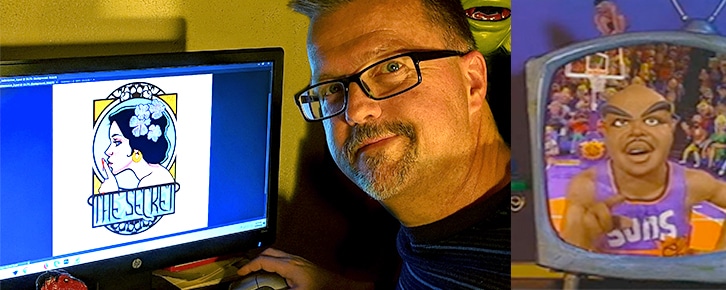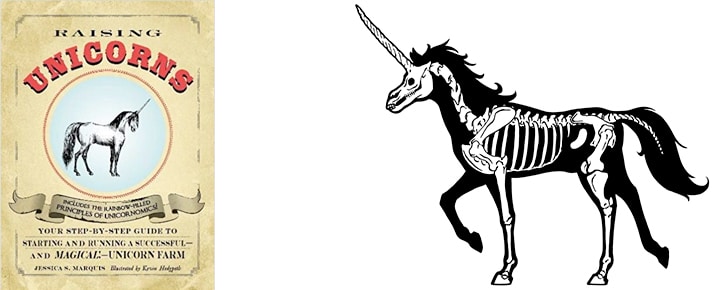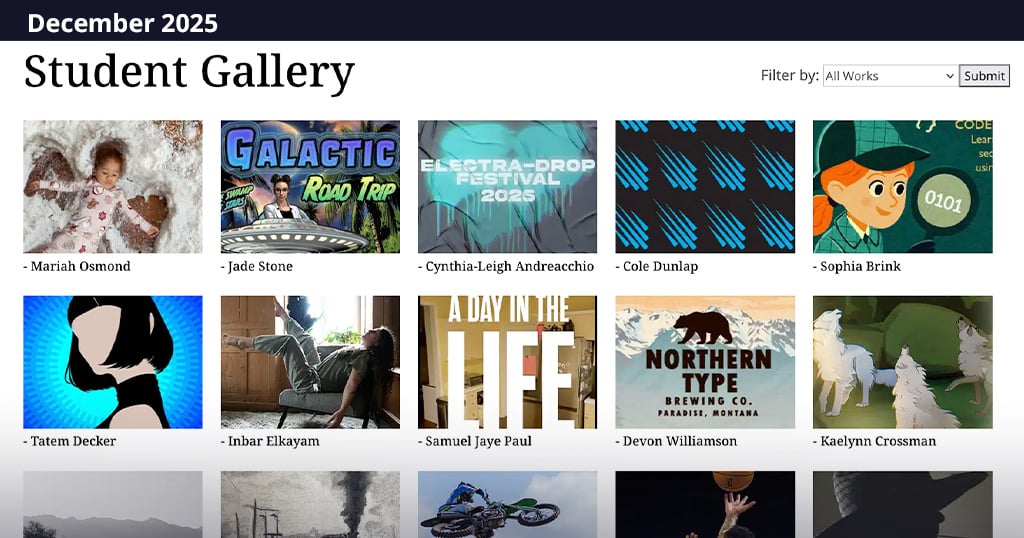Delivering Unicorns on a Deadline

Q: Kevin, you’ve had such an interesting and varied career, we have to ask how it began. What inspired you to become an artist, and what classes or teachers were instrumental to your development?
I have always loved to draw. When I was a child, my father and I used to sit at the kitchen table and draw monsters together. My university video art instructor was also very supportive of my artistic aspirations. Here’s a bit of my inspirational laundry list: the art of ancient civilizations, the sculpture of Michelangelo, and the paintings of Jean-Leon Gerome. The illustrations of Frank Frazetta, Basil Gogos, and Zdenek Burian. The stop motion work of Ray Harryhausen and the Supermarionation shows of Gerry Anderson.

Q: You worked for a time as an illustrator and designer of toys, games and animation properties at Myers Entertainment Group/Toy Time Toys. What kinds of projects did you do, and how did this help you grow as an artist?
The artistic growth potential at this small studio was great because we had our hands on so many different types of projects: character design work for a Chinese animation studio, radio-controlled cars that squirted water, and developing an action figure line of aquatic superheroes. We did big, full-color books to promote our properties. I might be drawing characters one day, digitally coloring them the next day, and finally laying out the book with my imagery in it. I really had to be a jack-of-all-trades. You improved because you had to learn new techniques and work fast!

Q: You have also done stop-motion animations for television advertising, such as an awesome public service ad from the 90s featuring Suns basketball star Charles Barkley. Can you briefly tell us about that project?
It was a big deal at the time and great fun! The Phoenix Suns were riding a huge wave of popularity as they headed for the NBA Finals. There were only three artists/animators working at the studio then and we hired a couple of interns to help. The project took about three months to complete and we were working sixteen hour days and the end; shooting on three or four different stages. The huge stadium background features a clay-animated audience that includes caricatures of Darth Vader, Spider-Man, and Michael Jackson.
Q: How did you break into that field and what attracts you to the painstaking world of frame-by-frame animation?
I had been experimenting with frame-by-frame animation for a video art course in college. After I graduated, my teacher referred me to a studio job because she remembered my passion for stop motion animation. I have always enjoyed puppetry and the idea of invoking life in inanimate figures as a means of storytelling is intriguing. While frame-by-frame dimensional animation is challenging, the reward of seeing your character in action is worth any tribulations. I feel that traditional stop motion animation creates visuals with a charm and je ne sais quoi that is unique to the art form.
Q: You’ve written books for Cengage Learning on character drawing and design. Do you see more demand for learning how to draw figures in this era of games and anime? What are some of the challenges for beginner students who want to create character art?
I have been teaching drawing and character design for twenty years now and the need is as strong as ever. Drawing is the cornerstone of visual communication. The field is very competitive and artists need to have good drawing skills to be successful in that area of endeavor. The critical challenges that many students face is the need to be competent in developing believable anatomy, proportion, and perspective in their character drawings.
Q: Another project in recent years is entitled “Raising Unicorns: Your Step-by-Step Guide to Starting and Running a Successful – and Magical! – Unicorn Farm” by Adams Media. Can you briefly describe that fantastical project?
It’s an amusing look into the pros and cons of running a unicorn farm and features pen-and-ink illustrations designed with a look that is slightly reminiscent of woodcuts. A colleague had written the manuscript for this zany book and sold it to Adams Media. She referred me to the publisher as a potential illustrator for the project. I ended up getting the job and just as I started illustration work on the book, our house was badly damaged in a storm. We were holed up in a hotel room for six months while it was repaired and I illustrated the entire book sitting at a makeshift drawing table in the corner of a tiny bedroom. When deadlines loom, you do what it takes to get the work done!
To find out more about Kevin Hedgpeth, visit his faculty page. To find more about art and illustration programs at Sessions College, visit our illustration degree and fine arts program pages.

Gordon Drummond is the President of a Sessions College. He's passionate about education, technology, and the arts, and likes to surround himself with talented people. Read more articles by Gordon.
RECENTLY ON CAMPUS





